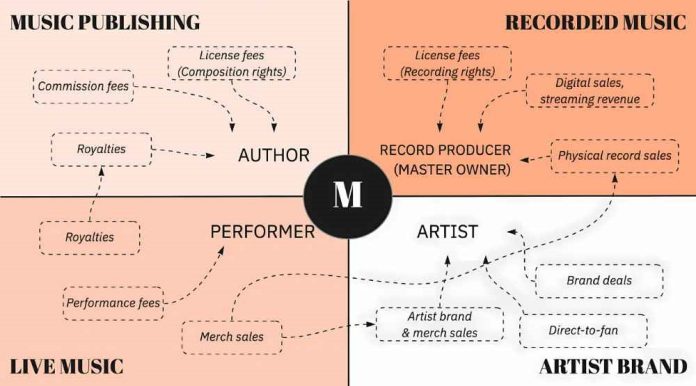
The 2020s have significantly transformed the music industry, primarily due to the rise of independent artists. These artists are navigating their careers without the backing of traditional labels. This shift not only changes how music is produced and consumed but also highlights the growing influence of independent artists. In this article, we explore how they are redefining success, impacting the music business, and shaping future trends.
Independence and Success
Independent artists are now achieving levels of success once deemed impossible without major label support. The democratization of music distribution through platforms like Spotify, Apple Music, and YouTube allows artists to reach global audiences independently.
Notable Career Trajectories:
- Chance the Rapper: His rise exemplifies digital-age independence. By releasing free mixtapes like Acid Rap, he built a dedicated fanbase through social media and streaming platforms. His strategic release of Coloring Book through Apple Music without traditional sales channels led to a Grammy, setting a new standard for independent success.
- Frank Ocean: After initial major label success, Ocean transitioned to independence with Endless and Blonde. By releasing these albums strategically, he retained creative control and reaped financial rewards, proving that an artist can thrive without traditional industry structures.
- Billie Eilish: Although Eilish started with a smaller label, her DIY approach fueled her rise to global stardom. When We All Fall Asleep, Where Do We Go? was produced at home, using minimalist production techniques that defined her unique sound. Her success underscores the potential for independent artists to achieve global acclaim through creative vision and social media engagement.
Impact on the Industry
The rise of independent artists has disrupted traditional power dynamics within the music industry. Historically, major labels controlled who got signed and promoted. However, digital platforms have shifted this balance. Independent artists now build direct relationships with their audiences through social media, crowdfunding, and grassroots promotion. As a result, a more diverse and authentic music landscape has emerged, allowing various voices and styles to flourish.
Industry Impact:
- Diversification of Sounds: Indie artists’ success has led to a more diverse music landscape, where various voices and styles flourish. For example, Lizzo, who initially released music independently, brought unique blends of pop, hip-hop, and soul to the mainstream, challenging genre boundaries.
- Artistic Integrity: The success of indie artists has encouraged a focus on artistic integrity and creative freedom, challenging the industry’s tendency to homogenize music for mass appeal. Artists like Bon Iver, whose minimalist, experimental sounds have garnered critical acclaim, exemplify this trend.
Future Trends
Looking ahead, several trends suggest that independent artists’ influence will grow. Understanding audience behavior is becoming increasingly important. This allows indie artists to tailor their marketing and touring strategies more effectively. Additionally, niche markets and genre-specific platforms will likely provide even more opportunities for independent musicians to thrive. We can expect to see further innovation in how music is marketed and distributed. Crowdfunding and fan-supported models, pioneered by artists like Amanda Palmer, will gain traction. These models offer new ways to fund projects without relying on traditional industry structures.
Conclusion
At Music Industry Weekly, we see that independent artists are not just succeeding on their terms but are also reshaping the entire music industry. As they push boundaries and embrace new technologies, these artists are setting the stage for a future where creativity and innovation thrive without the constraints of traditional label support. The trajectory of the 2020s suggests that the independent route is becoming the norm for many of today’s most successful musicians.